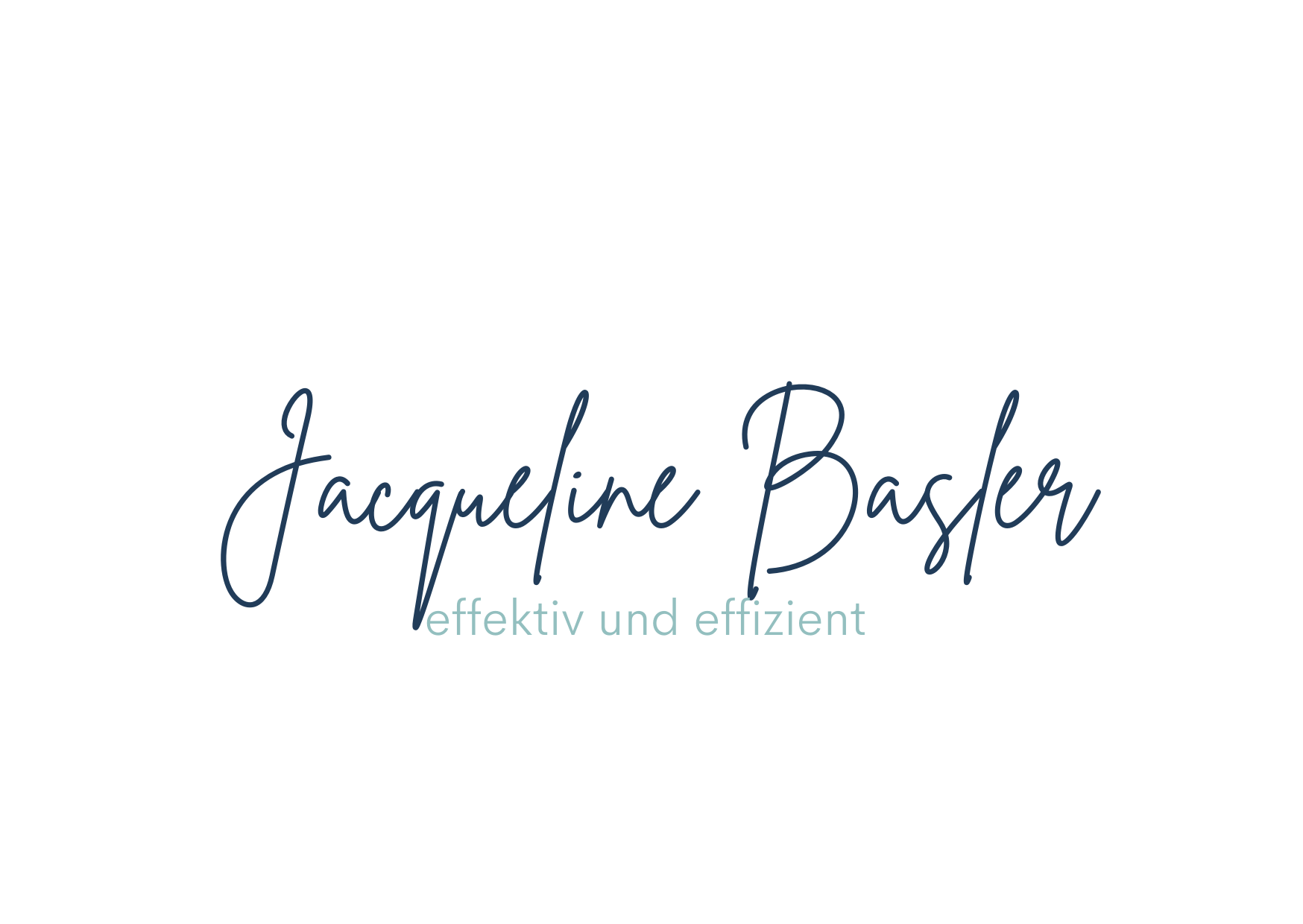Team building – a topic that every self-employed person deals with at some point
If you are self-employed, there comes a point when you have to ask yourself: How can I continue to grow without constantly spinning on the hamster wheel? Perhaps you’ve already experienced this moment – your business is going well, orders are coming in, but your day still only has 24 hours. You’re working harder and harder, but your growth is reaching an invisible limit.
This is exactly where team building comes into play. In my article Your business is growing – and you? Why team building is important now! I wrote about why support is key to sustainable growth – and why you don’t have to (or should!) do everything on your own.
But now the next big question is: where do I start?
⇒ Which tasks can and should I hand over first?
⇒ Who do I bring into the team first?
⇒ How do I hand over tasks without constantly thinking “I wish I’d done it myself”?
You may be familiar with the thoughts: “It’ll be quicker if I do it myself” or “I can’t afford any help yet.” But the truth is: Not delegating costs you more – namely time, energy and missed growth.
Today it’s all about how to approach team building strategically, what support makes the most sense for you and how to avoid typical mistakes. Because the transition from “I do everything myself” to “I work with a strong team” is a process – and that’s exactly what I’m going to guide you through.
Start building your team: Which tasks can you hand over?
Before you get support, you should first find out which tasks are slowing you down the most and which you can delegate first. After all, building a team doesn’t mean handing things over at random, but rather strategically outsourcing the activities that either take up too much of your time, slow you down or aren’t part of your core business.
⇒ The first step is to take an honest inventory: what do you actually do all day?
♦ Step 1: Collect all your tasks
Take a sheet of paper or open a note-taking app and write down everything you regularly do in your business. Don’t just think about the big projects, but also the small, daily tasks that often go unnoticed.
Here are a few examples to get you started:
– Customer communication → answering emails, managing inquiries, sending invoices
– Marketing & content creation → writing social media posts, writing blog articles, sending newsletters
– Accounting & Finance → Create invoices, sort receipts, prepare tax returns
– Online course creation → Plan content, record videos, set up course platform
– Technology & website → Website maintenance, troubleshooting, installing updates
– Administrative tasks → Coordinate appointments, organize files, set up tools
![]() Tip: If you don’t know exactly what your time is actually “disappearing” into, it helps to keep a small time log for a week. Make a note of how long it took you to complete each task.
Tip: If you don’t know exactly what your time is actually “disappearing” into, it helps to keep a small time log for a week. Make a note of how long it took you to complete each task.
♦ Step 2: Which tasks should you hand over?
Now it’s time to make a conscious decision: What should you really still be doing yourself – and what can someone else do for you?
Ask yourself the following questions about each task:
- Does this task directly generate revenue or growth for me?
- Does it require my personal expertise or could someone else do it for me?
- Does it cost me an excessive amount of time that I could invest better?
Here is a simple principle to help you:
- Keep: Anything that requires your personal expertise (e.g. coaching, product development, strategy)
- Delegate: Anything that someone else can do just as well or better (e.g. accounting, social media, technology)
- Eliminate or automate: Anything that eats up time unnecessarily or can be simplified with tools (e.g. standard emails, invoicing)
♦ Step 3: Start with the simplest tasks
The biggest mistake many people make is that they delegate too late or want to hand over too much at once.
Therefore, start with small, clearly defined tasks. For example:
-
- Instead of “I need help with social media” → “I want to hand over the creation of my Instagram posts.”
- Instead of “I want to do less bookkeeping” → “I want to hand over the monthly sorting of receipts to an accountant” or “I’m starting to automate my bookkeeping.”
- Instead of “I want to launch my online course faster” → “I’ll let someone else take over the video editing or the course area on my platform.”
![]() Tip: The easiest task to delegate is often the one you like the least.
Tip: The easiest task to delegate is often the one you like the least.
Conclusion: Your first step in team building starts with clarity
Before you bring someone into the team, realize where you are currently wasting the most time and which tasks really need to be done by yourself. By specifically eliminating time wasters and handing over tasks that can be delegated, you create more space for what really drives your business forward.
Who is the best fit for your business? Freelancer or permanent position?
Once you know which tasks you want to hand over, the next question is: who is the right support for you? Basically, you have two options: Freelancer or a permanent position.
Freelancers are ideal if you want to remain flexible and need selective support – for social media, accounting or web design, for example. They often have the necessary expertise straight away, but usually work for several clients, which means their availability fluctuates. In return, you only pay for the work actually done and can use different specialists as required.
A permanent position is worthwhile if you want long-term relief and have recurring tasks, for example in customer service, back office or project management. The advantage: stability and reliability. The disadvantage: higher fixed costs and more responsibility.
If you are unsure, start with a flexible solution. Freelancers are a good way of handing over initial tasks without any great risk. Once you realize that your business is growing through delegation, you can gradually think about a permanent position. It is important that you start small and test which support helps your business the most with clearly defined tasks.
How do you delegate effectively? (Without loss of control & chaos)
Many self-employed people are reluctant to hand over tasks – often out of fear that it will make more work than it saves. You may be familiar with thoughts such as “By the time I’ve explained this, I can do it myself” or “What if it doesn’t get done as well?” But the truth is: Not delegating costs you more in the long run – time, energy and growth.
The key to successful collaboration lies in clear communication, realistic expectations and the right tools. It’s important that you don’t just “get rid of” tasks, but consciously hand them over so that your business is truly relieved.
![]() Tip: Start with a small, clearly defined task and test the collaboration with a short briefing. This will help you gain trust and learn to relinquish control.
Tip: Start with a small, clearly defined task and test the collaboration with a short briefing. This will help you gain trust and learn to relinquish control.
⇒ In my article Effective delegation for the self-employed, I show you step by step how to delegate tasks smartly without getting into chaos. Delegating is a process that you will get better at over time. As soon as you realize how much freedom it gives you, you’ll wonder why you didn’t start earlier.
Typical mistakes when building a team – and how to avoid them
Building a team can take a huge load off your business – if you do it right. However, many self-employed people make typical mistakes that cause frustration or ruin the hoped-for effect. You may already be familiar with some of these challenges or have experienced them yourself.
“I should have started earlier…”
Many people wait far too long before seeking support. Only when they are completely overloaded do they seek help – but then they don’t have the time to train someone properly. In the end, everything is left up to them and the thought “It’s quicker if I do it myself” is (unfortunately) confirmed.
♣ Better: start with small tasks before you get completely bogged down in chaos. Even a few hours a week can make a big difference.
“Why doesn’t anyone understand me here?”
Unclear briefings are one of the most common mistakes. If it’s not clear exactly what needs to be done, you often don’t end up with the desired result. Then there are endless queries or – even worse – the task is implemented completely differently than intended.
♣ Better: take a few moments to clearly formulate expectations. A simple structure is: What exactly should be done? By when? Are there templates or examples? The more precise, the fewer misunderstandings.
“Actually, I wanted to save time…”
Some self-employed people hand in tasks but can’t let go. They check every detail, make corrections and end up spending more time checking than they did on the actual task. This feels more like extra work than relief.
♣ Better: ask yourself: Is the result good enough – even if it wasn’t done exactly the way I would do it? Delegating doesn’t mean that everything runs exactly as before – but that you gain more freedom.
“Oops, that was probably the wrong person…”
It happens quickly: you bring someone into the team but realize after a short time that it doesn’t fit. Maybe they don’t have the necessary experience, the way they work doesn’t harmonize or the expectations were different from the start.
♣ Better: Test the collaboration with a small task before you make long-term plans. This will give you a feel for whether the person is really a support for you.
“I actually wanted to be relieved, now everything is even more complicated…”
A common mistake: too much is handed over at once. If you try to outsource large areas in the shortest possible time, it can quickly become chaotic – for you and your team member.
♣ Better: Start with a single task. Let it settle in, gain confidence in the process and then gradually expand.
Your team building will be as good as you manage it – mistakes are part of it, but many can be easily avoided. It is crucial that you don’t see team building as a one-off task, but as a process that develops over time. Start small, learn what works for you and allow yourself to let go step by step. Building a strong team is one of the best decisions you can make for your business. If you avoid the most common mistakes, you will save yourself a lot of stress and can really benefit from your support.
Your first step: How to start building your team now
I regularly call on freelancers or VAs for support when I realize that a task is slowing me down or I’m getting stuck. Instead of spending hours teaching myself everything, I hand over individual tasks. This not only saves me time, but also often produces better results.
Maybe you’re at a similar point right now. You know that you want to be relieved, but the thought of giving up control or training someone else is still holding you back. That’s why it’s important to start small.
Here are three simple steps you can take to get started right away:
1️⃣ Look at your to-do list and highlight an activity that you would like to delegate first. Choose a task that takes a lot of your time but doesn’t necessarily have to be done by you.
2️⃣ Decide what kind of support you need. Do you need someone for a single project (e.g. a freelancer for your website) or rather long-term relief (e.g. a virtual assistant for your back office)?
3️⃣ Start with a test run. Search specifically for a person for this one task – via recommendations, networks or platforms. Assign a small, clearly defined task and observe how the collaboration works.
![]() Tip: Don’t wait for the “perfect” moment – it won’t come. Just start with something small and build up gradually.
Tip: Don’t wait for the “perfect” moment – it won’t come. Just start with something small and build up gradually.
Let’s start together – with my welcome package
If you’re still unsure about the best way to start building your team, I offer you the opportunity to give it a try. With my welcome package, you can test our collaboration over 3 or 5 hours – without any long-term commitment. This will give you an immediate feel for how it feels to hand over tasks and the relief you gain from doing so.
⇒ Interested? Then let’s talk! Book a free consultation here and together we’ll find out the best place to start: Book an appointment here
Conclusion: team building is a process – and you can start it today
Nobody builds a complete team overnight. But if you take the first step now, you will soon realize how much easier and more productive your business will become. Start small, delegate consciously and enjoy the relief – your future self will thank you for it.
About the author
I am Jacqueline, a self-employed virtual assistant, family manager and until recently a student on a distance learning Bachelor of International Management program.
During my time as an executive assistant, I realized that I like planning, organizing and structuring and that I have a talent for making other people’s lives “administratively” easier.
My mission as a VA is to give my clients more freedom, ease and time through my support – for a better work-life balance!
I am structured and organized and always have a smile on my face. I can familiarize myself with new software and systems very quickly and not only think about processes, but also like to develop them further (with you).
If you would like to know more about my background and my WORK – LIFE – BALANCE, please have a look at the page That’s me!over






